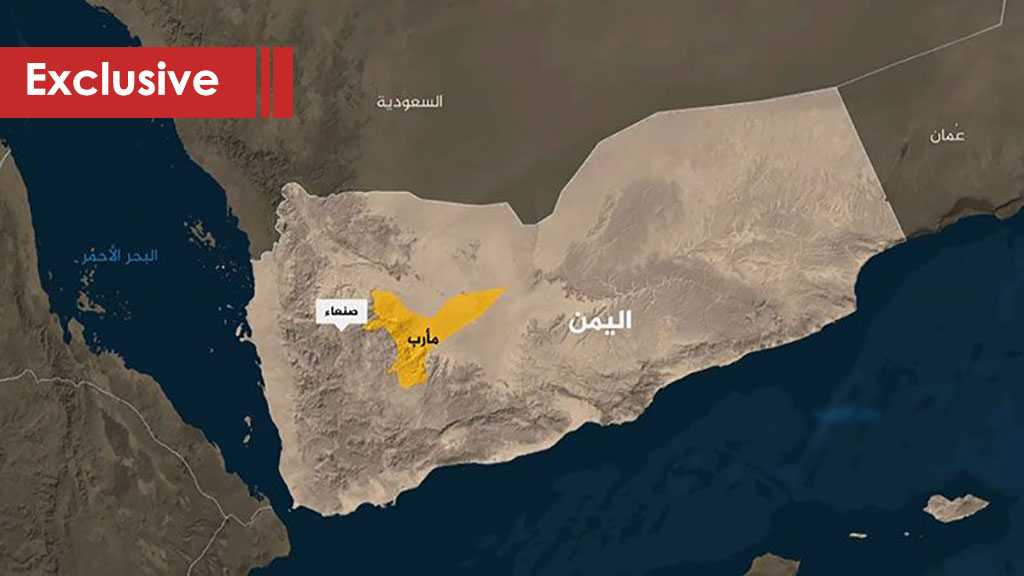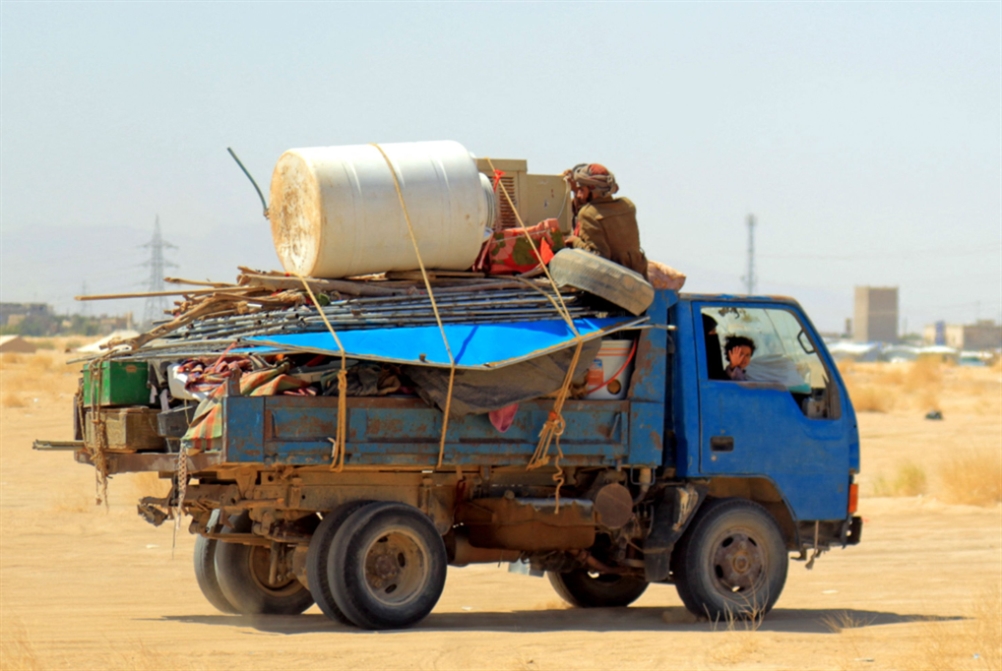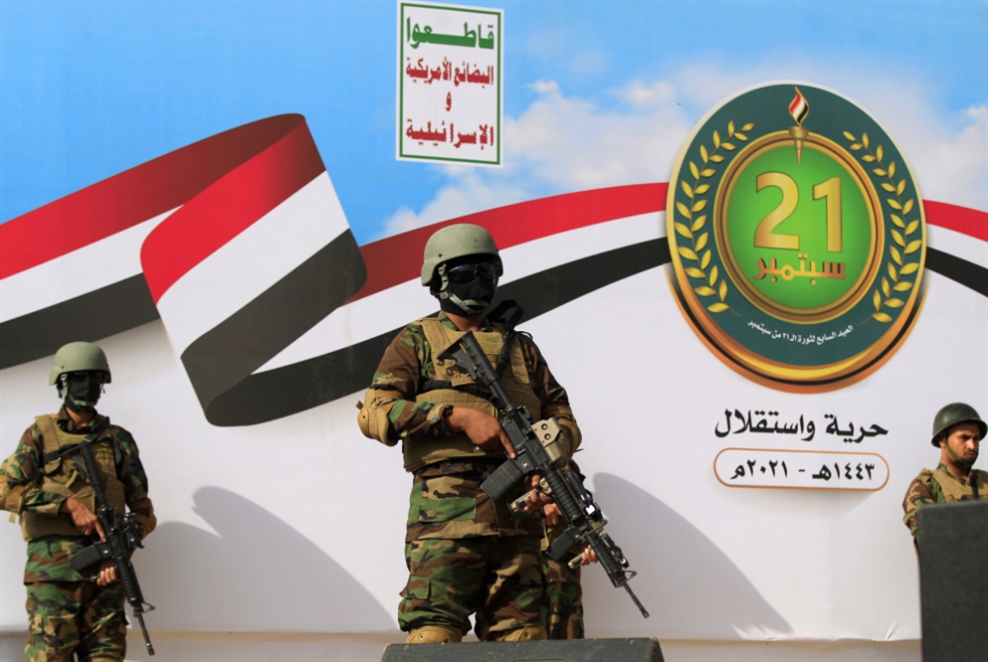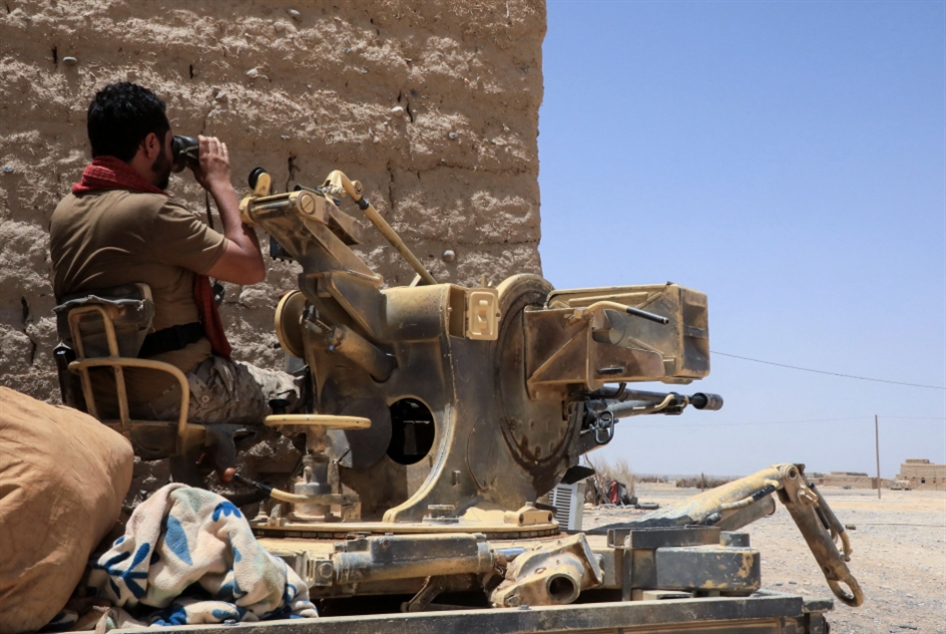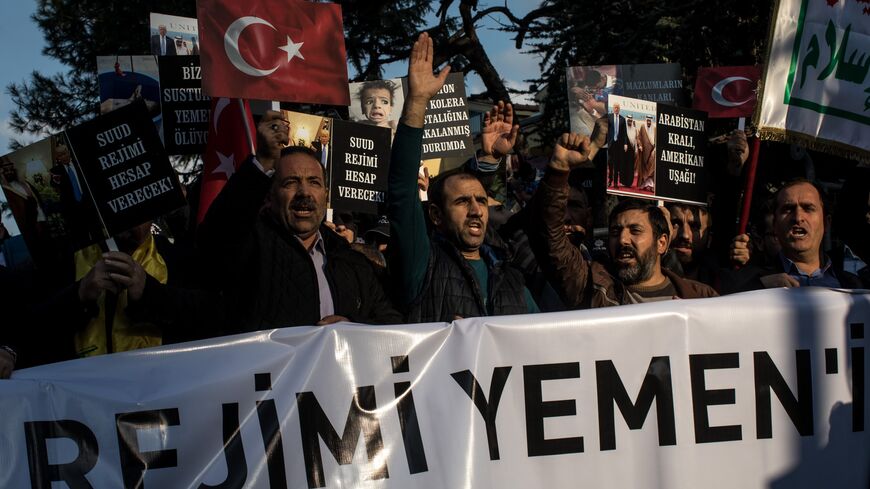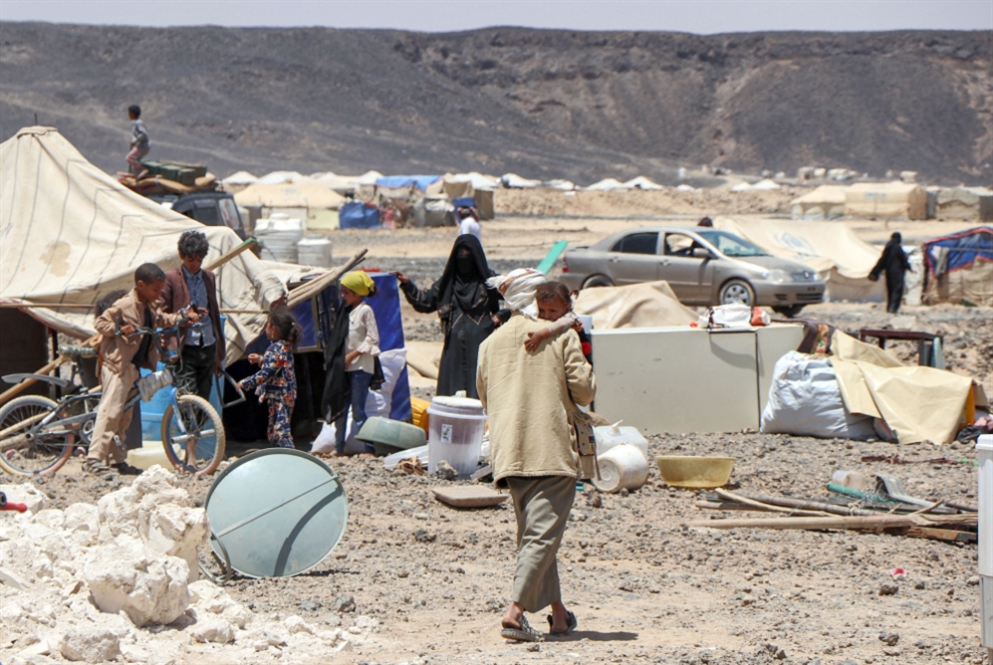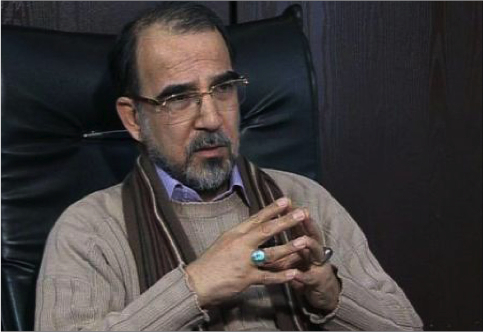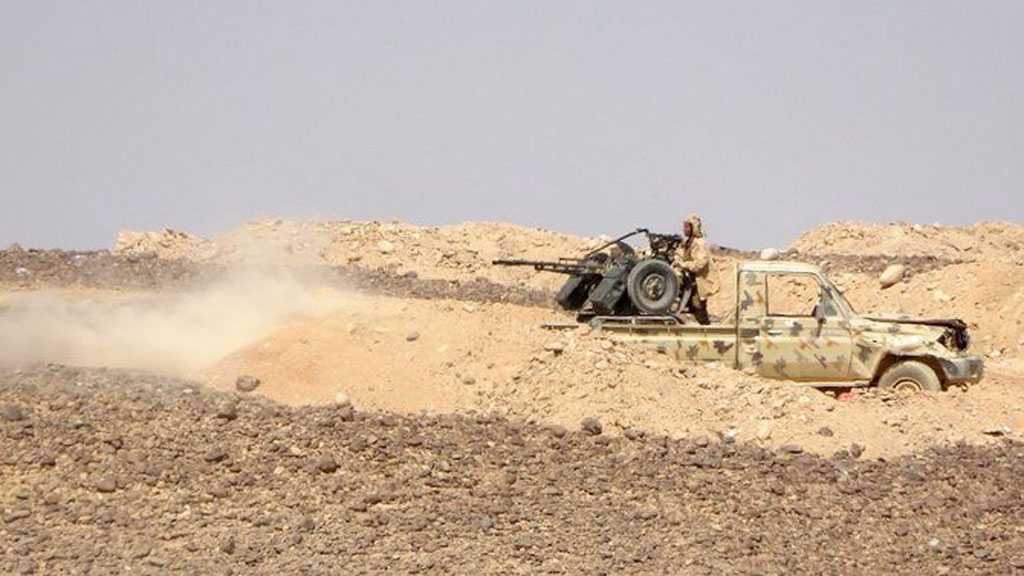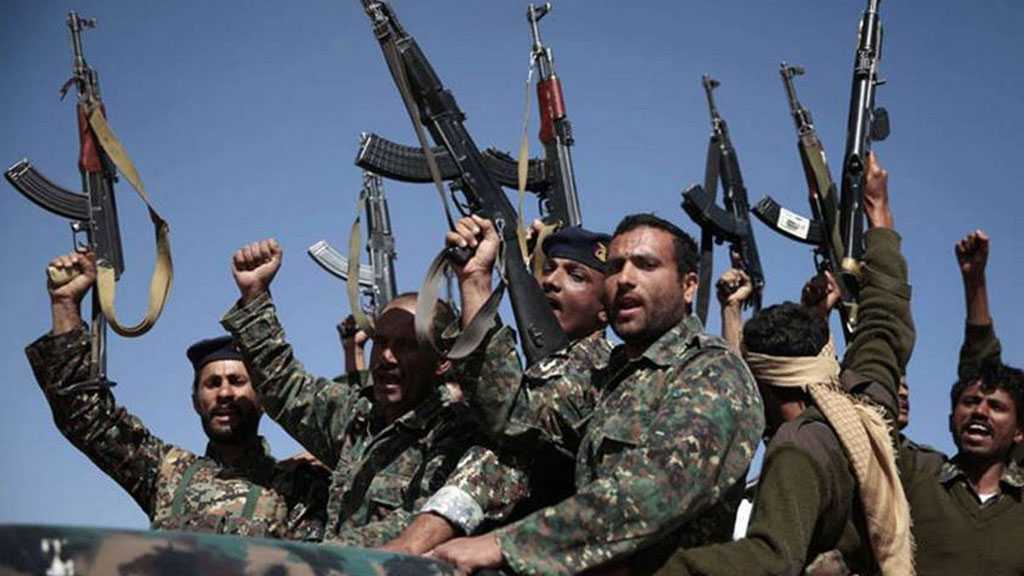The Gaza war and renewed US–UK strikes on Yemen are shattering what remains of the UAE–Saudi-led coalition. Now Yemenis of all stripes are flocking to embrace the Sanaa government and its resistance stance.
While the Red Sea military operations of Yemeni resistance movement Ansarallah have shaken up geopolitical calculations of Israel’s war on Gaza, they have also had far-reaching consequences on the country’s internal political and military dynamics.
By successfully obstructing Israeli vessels from traversing the strategic Bab al-Mandab Strait, the Ansarallah-led Sanaa government has emerged as a powerful symbol of resistance in defense of the Palestinian people – a cause deeply popular across Yemen’s many demographics. Sanaa’s position stands in stark contrast to that of the Saudi and Emirati-backed government in Aden, which, to the horror of Yemenis, welcomed attacks by US and British forces on 12 January.
The US–UK airstrikes have offended Yemenis fairly universally, prompting some heavyweight internal defections. Quite suddenly, Sanaa has transformed into a destination for a number of Yemeni militias previously aligned with the UAE and Saudi Arabia, now publicly declaring their allegiance to Ansarallah.
One such figure, Colonel Hussein al-Qushaybi, formerly with the Saudi–UAE coalition forces, announced in a tweet:
I am Colonel Hussein al-Qushaybi, I declare my resignation from my rank and my defection from the Legitimacy Army [army backed by Saudi-led coalition] that did not allow us, as members of the Ministry of Defense, to show solidarity with Palestine.
My message to army members: Go back to your homes, for our leaders have begun to protect Zionist ships at sea and support the [Israeli] entity, even if they try to deceive, but their support has become clear and it is still there.
Qushaybi claims he was incarcerated in Saudi prisons for 50 days – along with other Yemeni officers – for his outspoken defense of Gaza, during which he endured torture and interrogation by an Israeli intelligence officer.
Major Hammam al-Maqdishi, responsible for personal protection of Yemen’s former Defense Minister in the coalition-backed government, has also arrived in Sanaa, pledging allegiance to Ansarallah.
Simultaneously, a leaked ‘top-secret’ document from the Saudi-backed, UN-recognized Yemeni Ministry of Defense instructs military leaders to suppress any sympathy or support for Hamas or Ansarallah, as “this might arouse the ire of brotherly and friendly countries” – an implicit reference to Saudi Arabia and the UAE.

Defections and dissent
The wave of defections within the ranks of Saudi–Emirati coalition forces is not limited to officers. Many regular troops have openly rebelled against their commanders – abandoning their positions and pledging allegiance to Ansarallah – following the recent airstrikes on Yemen. Dozens of these soldiers have been arrested and detained for displaying solidarity with Gaza.
Yemeni news reports claim the US government, in a missive to the coalition’s Chief of Staff Saghir bin Aziz, expressed “dissatisfaction” with the lack of solidarity among his forces and demanded action.
While this trend of defections in the Saudi–Emirati coalition is not entirely new, it has accelerated considerably since the onset of the war in Gaza and the recent US-UK strikes on Yemen.
Last February, high-ranking coalition officers, including brigade commanders from various fronts, began a series of defections, though none as significant as the current rebellion.
These earlier defections were primarily driven by financial conditions and dissatisfaction with Saudi Arabia and the UAE for their dismissal of military commanders associated with the Islah Party (Muslim Brotherhood in Yemen), who were replaced by members of the UAE-backed Southern Transitional Council (STC) militias and those commanded by Tariq Saleh, nephew of pro-Saudi former Yemeni president Ali Abdullah Saleh.
Most of these defections were by officer and troops associated with the Islah Party during a time when the foreign coalition began marginalizing the party’s military and political leadership, and dismantling several military sectors under their control – in favor of the UAE-controlled STC.
Now, the Gaza war has the Islah Party leadership fully breaking with its old alliances. As party official Mukhtar al-Rahbi tweeted upon the launch of US-UK strikes:
Any Yemeni who stands with the US, UK, and the countries of the coalition protecting Zionist ships should reconsider their Yemeni identity and Arab affiliation. These countries protect and support the Zionist entity, and when Yemen closed the Red Sea and the Arabian Sea to the ships of this terrorist entity, this dirty alliance struck Yemen and punished it for its noble stance towards Gaza and Palestine.
In stark contrast, the UAE-backed STC and the Tareq Saleh-led National Resistance Forces expressed readiness to protect Israeli interests. On the sidelines of the World Economic Forum in Davos, STC President Aidarus al-Zoubaidi reaffirmed his support for the British attacks against Yemen, conveying this stance to British Foreign Secretary David Cameron.
Following these statements, an entire battalion under Saleh’s command defected to Ansarallah, while many other fighters now refuse his authority because they reject supporting US–UK strikes against Sanaa and its resistance leaders.
A shift in public sentiment
In response to the latest western aggression against Yemen, media outlets affiliated with the STC and its supporters have launched a campaign against Ansarallah and the Palestinian resistance, casting doubt on the Yemeni resistance movement’s capabilities and motives. But, their efforts have backfired badly, instead leading to widespread public fury in the country’s southern regions controlled by the UAE and Saudi-backed government.

Their anger is directed at the Aden-based government‘s perceived alignment with Israel’s regional projects, sparking both protests and symbolic acts, such as burning pictures of UAE President Mohammed bin Zayed and the Israeli flag.
According to Fernando Carvajal, a former member of the UN Security Council’s Yemen expert team, Ansarallah have managed to leverage – to their benefit – the untenable position of Abu Dhabi, which normalized relations with Israel as part of the 2020 US-brokered Abraham Accords. This, he argues, has helped them gain widespread support both within Yemen and internationally.
In the wake of this unexpected public outrage, the STC has experienced a further wave of defections within its ranks. Several leaders have joined the Southern Revolutionary Movement, and openly expressed their objective of liberating southern Yemen from what they see as “Saudi–Emirati occupation.”
Amidst the wave of military realignments, prominent Al-Mahra tribal Sheikh Ali al-Huraizi – arguably the most influential figure in eastern Yemen – has come out to praise Ansarallah’s military operations against Israel-bound shipping in the Red Sea, hailing its actions as a resolute and national response to the suffering of the Palestinian people.
Huraizi stressed that the US and British aggression against Yemen was launched to protect the Zionist state, because Ansarallah’s targeted strikes were negatively impacting Israel’s economy. Calling for unity among Yemenis, the tribal leader urged steadfast resistance against Israeli influence in the country. He also called on other Yemeni factions to follow the bold leadership of Abdul-Malik al-Houthi as a means to halt the genocide taking place in Gaza.
Countdown to the coalition’s collapse
Yemen’s deteriorating economic conditions, currency collapse in coalition-ruled areas, and ongoing conflicts among southern militias have left many Yemenis disillusioned with Emirati and Saudi proxies, whom they had hoped would bring – at the very least – economic prosperity.
In contrast, the Ansarallah-led Sanaa government has managed to maintain a relatively stable economic situation in the areas under its control, despite the foreign-backed war aimed at toppling it. This disparity has led to a growing sentiment among UAE-aligned soldiers that they are merely pawns fighting for the interests of Persian Gulf Arab rulers, without receiving due recognition from these governments.
The contrasting stances on Palestine between the coalition and Ansarallah have deepened the Yemeni divide since the events of 7 October. Sanaa’s support for the Palestinian cause has significantly boosted its domestic standing, while US–UK strikes on the country have complicated their Persian Gulf allies’ position by prioritizing Israeli interests over all other calculations.
Disillusionment with the coalition will have profound political and military implications for Yemen, reshaping alliances, and casting the UAE and Saudi Arabia as national adversaries. Palestine continues to serve as a revealing litmus test throughout West Asia – and now in Yemen too – exposing those who only-rhetorically claim the mantle of justice and Arab solidarity.
The views expressed in this article do not necessarily reflect those of The Cradle.
Filed under: "Israel", House of Saud, Palestine, Saudi Arabia, United Arab Emirates UAE, Yemen | Tagged: Abraham Accords, AngloZionist Empire, Bab al - Mandab Strait, Cameron, Saudi-led war on Yemen, STC President Aidarus al-Zoubaidi reaffirmed his support for the British attacks against Yemen, War on Gaza, Yemen’s Red Sea blockade, Yemeni Ansarullah, Yemeni Armed Forces (YAF), Yemeni Islah party | Comments Off on Yemenis ditch UAE–Saudi coalition for Gaza














